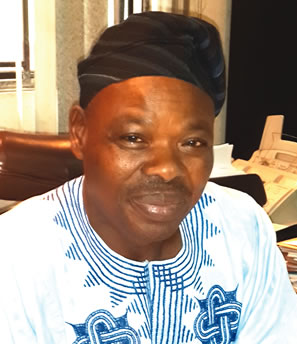
Amidst concerns over the failure of the Nigerian National Petroleum Corporation (NNPC) to patronise indigenous ship owners for coastal and bunkering vessel services, the founding President of the Nigerian Shipowners Association (NISA), Chief Isaac Jolapamo, has said that bunkering services can only be done effectively by foreigners.
The Shipowners Association of Nigeria (SOAN) had last week petitioned the National Assembly as NNPC contracted coastal and bunkering vessel services to a foreign company named UNIBROS.
SOAN claimed that UNIBROS operates under the guise of various foreign shell companies with 11 foreign-flagged coastal tanker vessels.
The petition signed by the SOAN President, MkGeorge Onyung, urged the National Assembly to investigate the NNPC over the breach of the Cabotage law in the award of contracts to foreign vessel owners to the exclusion of Nigerian ship owners.
But speaking with SHIPS & PORTS, Jolapamo explained that the reason why NNPC choose to patronise foreign shipowners is because the fuel for use by ships are supplied from outside the country, hence it would not be profitable for indigenous operators to compete with their foreign counterpart.
He said, “To me, it is not unexpected that NNPC will award contracts to foreign ship owners for bunkering services. The NNPC is an establishment, which has its own abiding laws no matter who is at the helm of affairs.
“The bunkering activities in Nigerian waters can only be done effectively by foreign companies; the reason being that the product is obtained from outside. It is unlike if we are producing ourselves as expected and these products are being sold to the people at a discount for them to make profit to take care of their freight as well as profit margin. But what we are getting today is that the product is coming with a premium before getting to Nigeria. So it is only the foreign concerns that can actually manage such things and make it profitable. That could be part of the thinking of the NNPC, although I am not supporting them.
“I am not saying the indigenous ship owners do not have the capacity. They do but it is not profitable to the ship owners because they cannot compete with a foreigner who would have bought the product from his own country or somewhere in Europe where he gets a discount and then brings it down to come and sell.
“Those who are getting the contract now are the people that are actually supplying the Nigerians who are in the trade. If they make a tender to the NNPC, their tender will definitely be much lower than that of a Nigerian operator. These are the issues.
“The NNPC can latch on that and say it is cheaper from this source but of course what we want to do is grow the industry, but personal interest sometimes overrides some of this growth we all canvass,” he said.
When asked if the decision of the NNPC is not against the local content laws including the cabotage law, Chief Jolapamo said, “It is not today that we are flouting the cabotage and local content law. In our days, we had to help ourselves by arresting vessels and we know that the NIMASA guys are being involved in some of these act.
“We even report officers that collect money in those days. It is all about the human factor. If that is not completely removed or brought down to the barest minimum, nothing is going to work.”